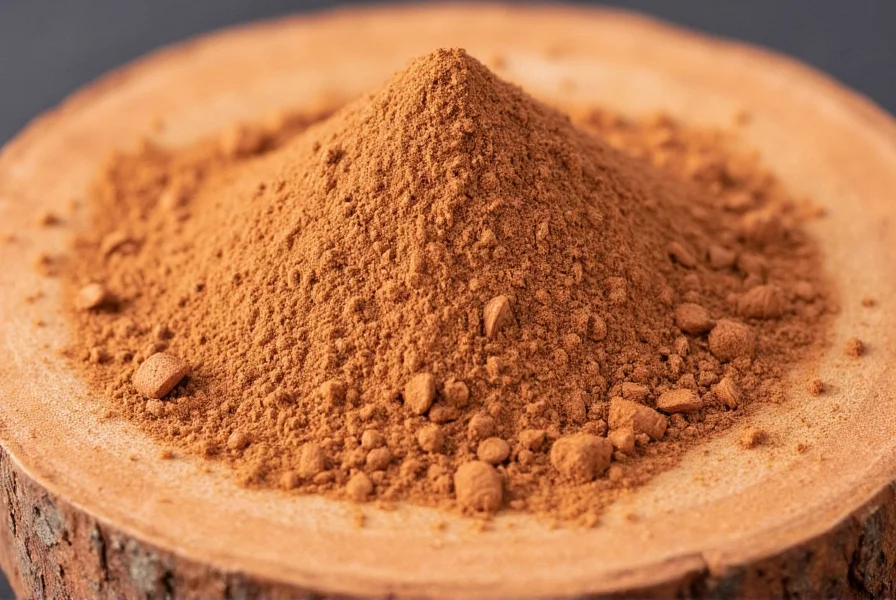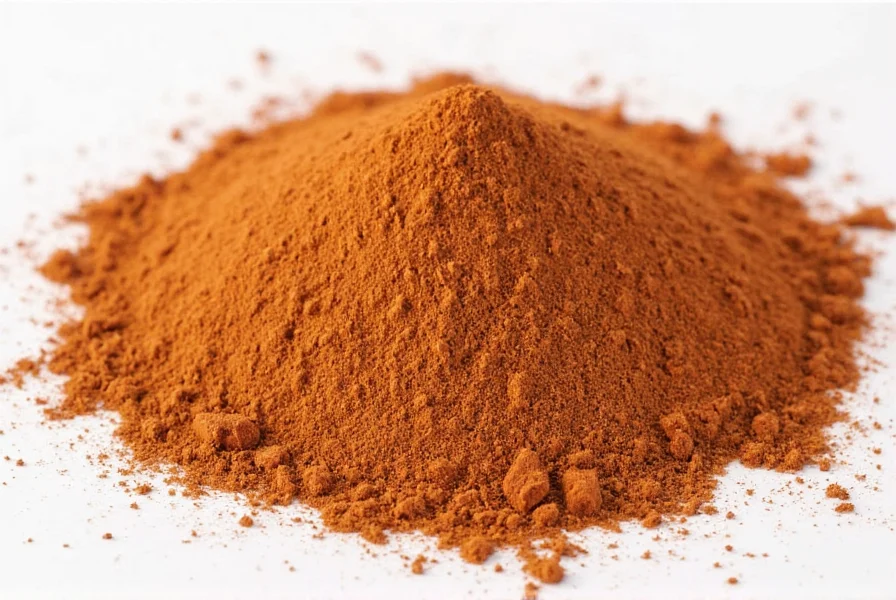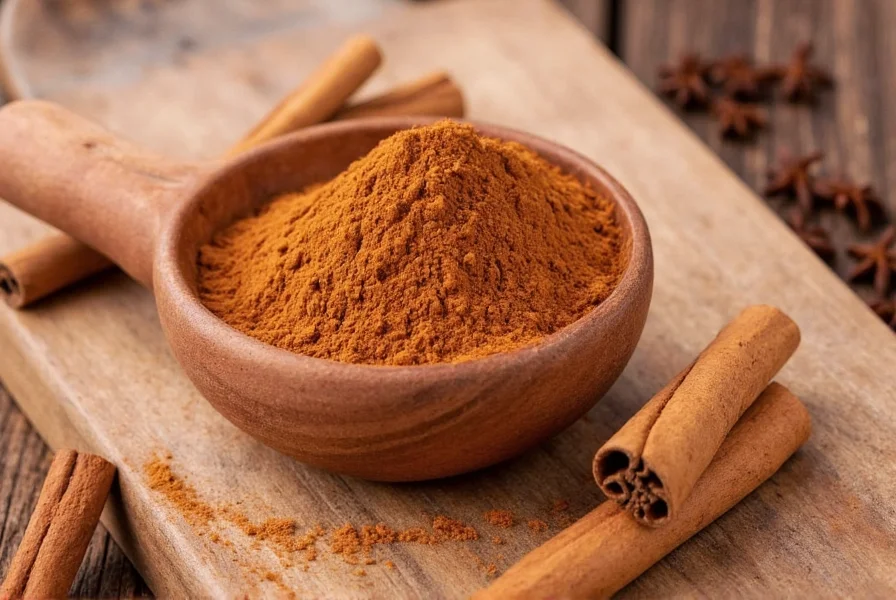When you see cinnamon powder in recipes or grocery stores, you're looking at finely ground bark from cinnamon tree varieties. This versatile spice has been used for thousands of years across multiple cultures, not just for flavor but also for traditional medicinal purposes. Understanding the different types, proper usage, and evidence-based benefits can help you make informed decisions about incorporating this spice into your diet.
Types of Cinnamon Powder: Ceylon vs Cassia
The two primary varieties of cinnamon powder available globally represent significantly different products with distinct characteristics. While both come from the inner bark of cinnamon trees, their chemical composition, flavor profiles, and safety considerations vary considerably.
| Characteristic | Ceylon Cinnamon | Cassia Cinnamon |
|---|---|---|
| Also known as | "True" cinnamon, Mexican cinnamon | Chinese cinnamon, regular cinnamon |
| Scientific name | Cinnamomum verum | Cinnamomum cassia |
| Coumarin content | Very low (0.004-0.12%) | High (2.15-6.97%) |
| Flavor profile | Milder, sweeter, more complex | Stronger, spicier, more intense |
| Physical appearance | Multiple thin, delicate layers | Single thick, hard layer |
| Market availability | Less common, more expensive | Most common in supermarkets |
Most cinnamon powder sold in supermarkets across North America and Europe is actually Cassia cinnamon, despite Ceylon being considered "true" cinnamon. This distinction matters significantly when considering health benefits of cinnamon powder and potential safety concerns, particularly regarding coumarin content.
Nutritional Profile and Evidence-Based Health Benefits
A single teaspoon (approximately 2.6g) of ground cinnamon contains:
- 6 calories
- 2.1g carbohydrates
- 0.1g protein
- 0.1g fat
- 1.4g fiber
- Significant amounts of manganese, calcium, and iron
Research suggests several potential health benefits associated with regular consumption of cinnamon powder. Studies published in the Journal of the Academy of Nutrition and Dietetics indicate that cinnamon may help improve insulin sensitivity, making it potentially valuable for those managing blood sugar levels. The compound cinnamaldehyde appears responsible for many of these effects.
When examining cinnamon powder nutritional facts, it's important to note that Ceylon cinnamon generally offers similar health benefits with lower coumarin content compared to Cassia. For individuals concerned about cinnamon powder for blood sugar control, both types show promise, but Ceylon may be preferable for regular, long-term consumption.

Culinary Applications and Usage Tips
Cinnamon powder enhances both sweet and savory dishes across global cuisines. Understanding how to use cinnamon powder effectively can transform your cooking experience.
For baking applications, add cinnamon powder early in the mixing process to ensure even distribution. When making how to use cinnamon powder in baking recipes like cinnamon rolls or apple pie, blooming the spice in a small amount of warm liquid (like milk or melted butter) first can intensify its flavor profile.
In savory applications, Middle Eastern and Indian cuisines frequently incorporate cinnamon powder into meat rubs, rice dishes, and stews. A pinch added to tomato-based sauces can create remarkable depth of flavor. For beverages, cinnamon powder works exceptionally well in coffee, hot chocolate, and chai tea.
Proper Selection and Storage Techniques
When selecting cinnamon powder, look for products with a vibrant color and strong aroma. Fresh cinnamon should have a sweet, warm scent that's immediately noticeable when opening the container. The powder should feel fine and flow freely, without clumping.
For optimal shelf life, store cinnamon powder in an airtight container away from heat and light. Properly stored, it maintains peak flavor for 6-12 months. To test freshness, rub a small amount between your fingers and smell it—if the aroma is weak or musty, it's time to replace your supply.
Understanding storing cinnamon powder properly ensures you get the maximum flavor and potential health benefits from this spice. Avoid storing it near the stove or in clear containers on open shelves, as both heat and light accelerate flavor degradation.

Safety Considerations and Recommended Intake
While cinnamon powder offers numerous potential benefits, it's important to consume it responsibly. The primary concern with regular cinnamon consumption relates to coumarin, a naturally occurring compound found in higher concentrations in Cassia cinnamon.
The European Food Safety Authority recommends a maximum daily intake of 0.1 mg of coumarin per kilogram of body weight. For a 60 kg (132 lb) person, this translates to approximately 1 teaspoon of Cassia cinnamon powder daily. Those with liver conditions should exercise additional caution.
For regular, long-term consumption, many health professionals recommend choosing Ceylon cinnamon due to its significantly lower coumarin content. When exploring cinnamon powder vs ground cinnamon options, remember that these terms are generally interchangeable—"ground cinnamon" simply refers to the powdered form.
Frequently Asked Questions
What's the difference between cinnamon powder and ground cinnamon?
Cinnamon powder and ground cinnamon are the same product—finely milled cinnamon bark. The terms are used interchangeably in cooking and grocery contexts. Both refer to the powdered form of either Ceylon or Cassia cinnamon varieties.
Which type of cinnamon powder is healthier, Ceylon or Cassia?
Ceylon cinnamon is generally considered healthier for regular consumption due to its significantly lower coumarin content (0.004-0.12% compared to Cassia's 2.15-6.97%). Both offer similar health benefits, but Ceylon allows for higher daily intake without coumarin-related concerns.
How much cinnamon powder can I safely consume daily?
For Cassia cinnamon, limit to 1 teaspoon (about 2.6g) daily due to coumarin content. Ceylon cinnamon allows for higher consumption—up to 1-2 tablespoons daily for most adults. Those with liver conditions should consult a healthcare provider before regular consumption.
Does cinnamon powder really help with blood sugar control?
Research suggests cinnamon powder may improve insulin sensitivity and help moderate blood sugar spikes after meals. Multiple studies, including those published in the Journal of the Academy of Nutrition and Dietetics, show modest benefits, but it should complement—not replace—standard diabetes management approaches.
How can I tell if my cinnamon powder has gone bad?
Stale cinnamon powder loses its strong aroma and vibrant color. If it smells musty or weak when rubbed between your fingers, or if it's been stored more than 12 months, it's likely past its prime. Properly stored in an airtight container away from light and heat, cinnamon powder maintains quality for 6-12 months.











 浙公网安备
33010002000092号
浙公网安备
33010002000092号 浙B2-20120091-4
浙B2-20120091-4